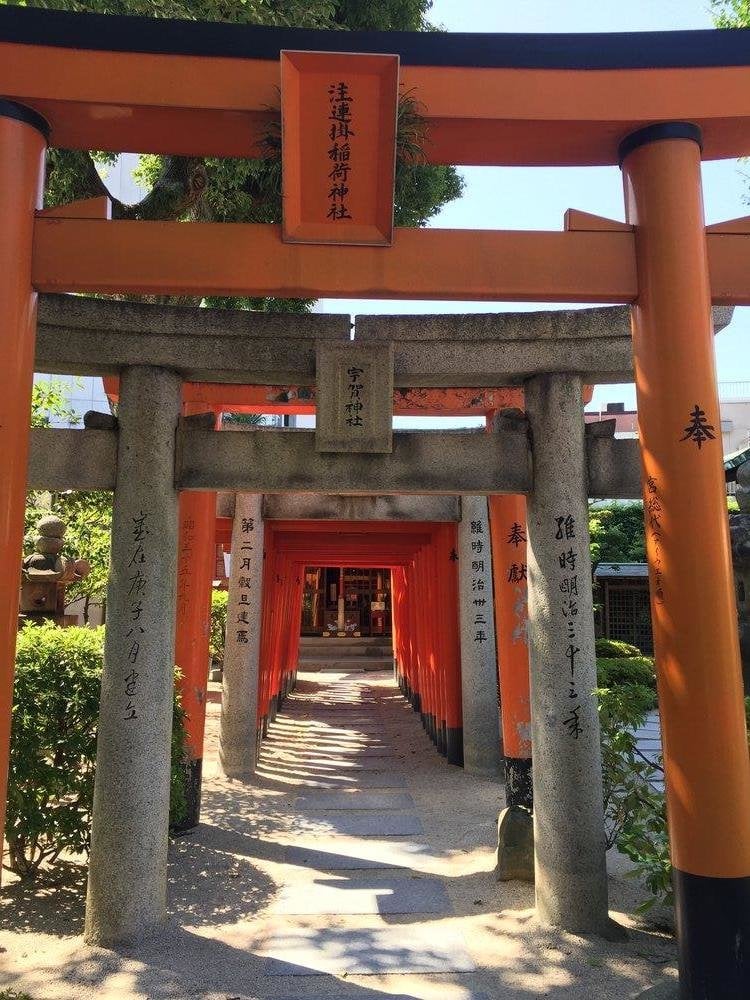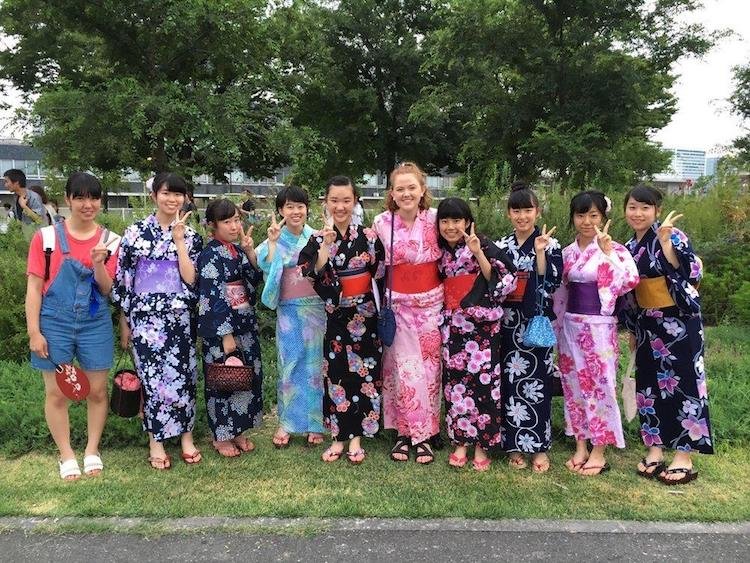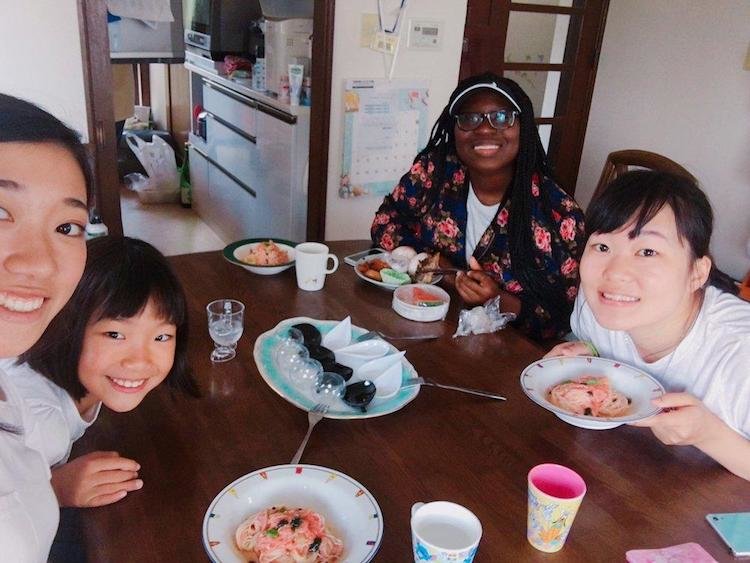How a Homestay will Benefit your Language Skills
If your goal is to learn a foreign language during your study abroad, read on to find out how a homestay will benefit your development!

Before I left to Japan, I studied Japanese for about nine months. My language skills were just budding, and my brain was full of random vocabulary and kanji. I was just barely able to squeeze out a basic sentence... It was pitiful.
Landing in Tokyo for a semester abroad was like jumping into the bottom end of a pool -- an unfamiliar, intimidating pool. I clammed up on the street, not confident enough in my abilities, afraid to make mistakes. I enrolled into an all-girls’ high school, where, for all of its perks, I was faced with rote memorization and tedious reviews of Japanese grammar.
Despite all of this, my language skills went into turbo-mode and improved immensely during my semester in Japan. I credit this entirely to my homestay program. I stayed with a family of six in Tokyo: a couple, their parents, and their two daughters. After just a few weeks, I was joking with my host sister and complimenting my host mom’s cooking. My Japanese skills were still basic, but I spoke more fluidly and confidently. I wasn’t afraid to blunder; instead, I embraced my mistakes and powered through broken sentences. And, somehow, my host family remained patient.
By the time I left, I was speaking full, correct sentences without hesitation. If your goal is to learn a foreign language during your study abroad, I highly recommend a homestay. It’ll help you boost your skills beyond your expectations and take them to the next level, and here’s how.
Your Homestay is a Safe Practice Ground

Learning a language can be intimidating. Imagine sitting in class, waiting for the teacher to call on you. You have to have a constructed answer ready -- there’s nothing natural about that. Or picture yourself at a bar: the bartender is staring at you, waiting for your order, and all that’s coming out is a wheeze and a stutter.
In your homestay, the pressure’s off. You have the opportunity to learn at your own pace, while you attempt to understand, decipher, and join in the conversations of your host family.
A homestay is the ultimate language practice ground: you’ll have constant challenge in a safe environment. Take that clunky grammar that you learned in class and try it out on your host family. Don’t be shy to communicate; you’ll make mistakes—so what? You’re there to learn, and the family understands that. Chances are, they’re likely patient and open-minded, as if they weren’t, they wouldn’t have taken you in. If there are young children, all the better, since kids generally pick up on your broken phrases without judgment and aren’t afraid to correct you.
A Homestay is Better than a Dorm

Life in a dorm can be great. You’re independent, you’re surrounded by people your own age, and you usually have easy access to campus. But in a lot of schools, you’re grouped with fellow exchange students, leading you to fall back on English more often than not. Even the native students will likely want to practice their English on you.
This is the “foreigners’ trap,” the danger that exchange students only cavort with English-speakers. Don’t fall into this trap -- you’ll regret it! A host family might not speak English all that well (or at all!). If they do, simply ask them not to; likely they’ll understand and admire you for the extra effort. In Tokyo, my class of all exchange students meant I socialized mostly in English, but when I went home, I bonded with my host family entirely in Japanese.
You’ll Pick up Everyday Vocabulary in a Homestay

In a homestay, you’ll encounter household items and tools you use everyday. The laundry basket, dinner plates, the toilet. This is the most useful vocabulary that you’ll continue to use on a daily basis throughout your language career. Is there anything more relevant than knowing how to ask where is the bathroom? Your foundational skills will continue to grow day by day, until you have a hefty lexicon! Children sometimes find it fun to help build those basics with you. I still have warm memories of my 10-year-old Japanese host sister trying to teach me everyday slang and fun shortcuts.
You’ll Speak like a Native in a Homestay

All the language classes and textbooks in the world can’t teach you the natural rhythm of conversation. That’s something you can only pick up throughout constant immersion.
At a homestay, you’ll be around native speakers constantly, listening, speaking, and reading. You can pick up a lot of special phrases, how to pronounce them correctly, and know when to use them appropriately. Knowing when to use honorifics in Japan, for example, is a big deal, but extremely difficult to learn from a book. It’s something you have to practice out in the real world.
A homestay will expose you to different styles of language, too. The younger generation will teach you slang, while the older generation might speak old-fashioned or slowly. Living with a host family is like having multiple tutors that constantly improve your ability to communicate. It’s an immersive environment that’s irreproducible in a dorm.
It was a wonderful experience to study in Tokyo. Everything I learned about myself and Japan was immeasurable. But it was my Japanese family who gave me the ultimate omiyage (souvenir) to take home: a level of familiarity and confidence with the Japanese language that I’ve had ever since. Without my homestay, I might never have had the opportunity to learn so deeply and richly.
